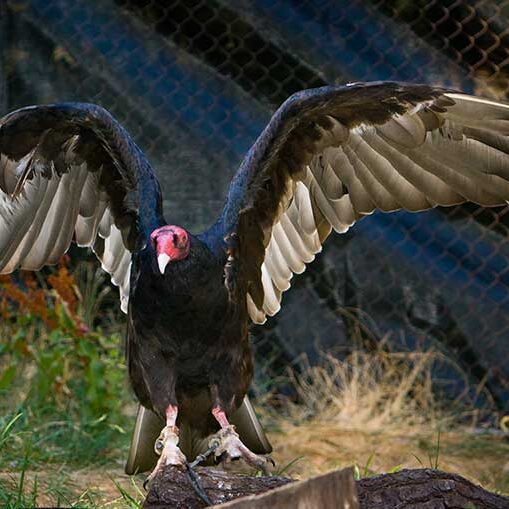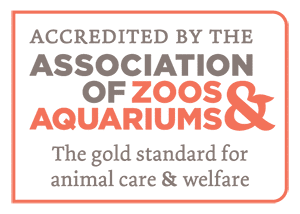Animals
Turkey Vulture

This animal is not on exhibit in the habitats.
It is one of our Animal Ambassadors and is used in public and school programs.
Latin Name
Cathartes aura
History at CuriOdyssey
The turkey vulture had a fractured ulna (bone in the wing). The bone did not heal well enough for her to be released. She was transferred here in 1991 and placed in the raptor aviary.
Our second vulture is an education vulture. He came to us from Lindsay Wildlife Museum in 2001. He was found as a juvenile with bilateral cataracts and was deemed non-releasable.
Birth Date
The birth date is unknown, but estimated around 1990.
Fun Facts about Turkey Vultures
Vultures poop on their legs to kill the bacteria from the carrion they eat.
What do Turkey Vultures Eat?
Carrion from the size of mice and snakes to the size of a horse; they will sometimes take young herons or ibis from their nests or may kill weak or dying animals. At CuriOdyssey, they are served rats, chicks, quail, and rabbit.
How long do turkey vultures live?
In the Wild: Approximately 16 years.
In Captivity: About 30 years.
Where do turkey vultures live?
Turkey Vultures' habitat include open plains, deserts, and forests. They range in Southern Canada south into Central and South America.
Are Turkey Vultures endangered?
No special wildlife conservation status. However, their close relative, the California Condor, is very endangered.
SPONSOR AN ANIMAL
Help provide for the care and feeding of our wildlife guests by sponsoring an animal of your choice for a year.
Join the CuriOdyssey Community
LOCATION
1651 Coyote Point Drive
San Mateo, CA 94401
Ohlone Land Acknowledgement
650-342-7755
info@curiodyssey.org
CuriOdyssey is a 501(c)(3) non-profit, Tax ID 94-1262434

